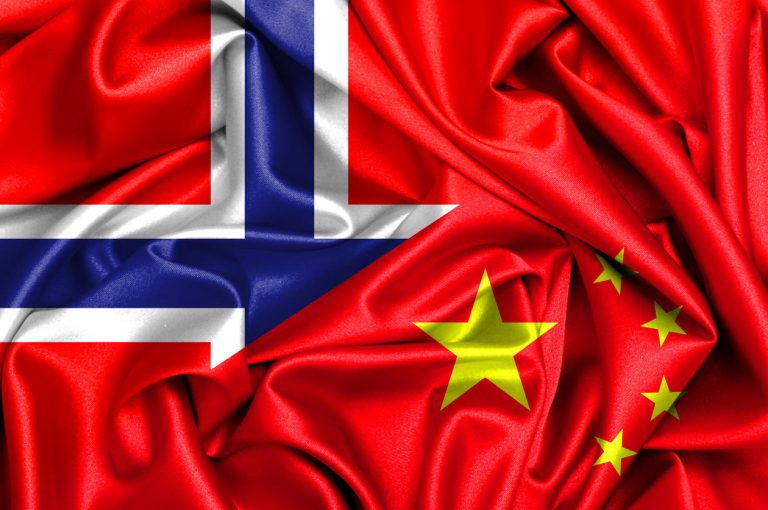Iran Sanctions
China Sanctions
The US Government is continuing its efforts to isolate Iran.
Last week, some more “high-profile” Chinese shipping companies were added to the list of Specially Designated Nationals (SDNs). The sanctioned parties include subsidiaries and their executives of COSCO Shipping Corporation Ltd 中国远洋海运集团有限公司.
- COSCO Shipping Tanker (Dalian) Co 大连中远海运油品运输有限公司
- COSCO Shipping Tanker (Dalian) Seaman & Ship Management Co Limited大连中远海运油运船员船舶管理有 限公司
- China Concord Petroleum Co 中和石油有限公司,
- Pegasus 88 Limited 飞马88有限公司,
- Kunlun Shipping Company Ltd昆仑航运有限公司,
- Kunlun Holding Company Ltd 昆仑控股有限公司
Companies need to be aware of these SDNs, as well as with subsidiaries that are owned 50% or more by them. Of course, these subsidiaries are not listed by the US Government, leaving the onus on you to do you own due diligence.
LSR finds out who owns and directs your Chinese business counterparts. We will get the information from verifiable and reliable government sources to add to your audit trail.
Each company search will give you:
- Company Representative
- Directors
- Shareholders
- Share Capital
- Official documentary document as evidence
Fixed Price: US$ 85 per company
Delivery: 24 Hours
Insurers and Compliance officers trust us. We unearth commercial information and provide advice on low-profile companies in Asia and the Middle East. LSR listens to the details, understands what you need and gets you results – so that you can sleep at night.
How much has Scandinavia influenced Chinese Maritime Law? Quite a bit it seems…
China ScandinaviaHow much has Scandinavia influenced Chinese Maritime Law? Quite a bit it seems…
LSR stays up to date with major changes in international law and, in March 2019, attended a seminar hosted by the Hong Kong Shipowners Association. A segment touched briefly on the role played by foreign legal codes in the continuing development of China’s maritime law. We were surprised to hear about the influence that Norwegian maritime law especially had in the early years of this development.
Law in China has developed from a traditional “Confucian” system in the Dynastic period up to the 20th Century, to a Civil Law system supporting the principles of a socialist market economy. This journey saw progress halted by civil war, changes in political direction and even cultural revolution. How to develop a legal structure that will support a new push to a more market-based economy and ease entry into the World Trade Organisation? Adopt best practice from others was the sensible approach.
Russian maritime law had provided a heavy influence due to historic familiarity with the Socialist Legal system. However, we understand that it was recognized early on that Norway, despite being a small country, had benefited greatly and projected its national influence and interests efficiently based, in part, on its maritime connections. This resulted in scholarly research and adoption, copying and influence of many of the laws and principles that Norway had enshrined in its own legal system.
Of course, time moves on, and we were also told by our Chinese contacts that, upon recently re-visiting the maritime codes and policies of both Norway and Russia, they are confident that China has moved on and has now adopted more modern attributes than its former mentors. Time will tell.

Copyright:Bojan Tomasevic ©
Registered Capital of a Chinese company – all things to all men?
China Industry AnalysisRegistered Capital is an integral part of establishing a company and subsequent filings in China, whether its domestically owned or whether it’s a Wholly Foreign Owned Entity (WFOE). Each company has to disclose it on its Business License, a proof of company existence and the ability to trade legally.
So…“Registered Capital” is often the foremost tangible, and some would say, reliable financial figure that is available to third parties in their due-diligence.
But what does Registered Capital actually mean? There are numerous expressions explaining capital:
Authorised Capital – maximum amount of the capital for which shares can be issued by the company to shareholders.
Issued capital – share capital that has been issued to shareholders.
Paid Up Capital – the amount of money a company has received from shareholders in exchange for shares, at par value.
In China, the Registered Capital is akin to Issued Capital. However, the country currently implements a subscription registration system and a company’s Shareholders are not required to pay up the full capital provisions before they obtain their Business License.
In terms of complying with domestic law, so long as the shareholders pay over the capital funds (can be currency, fixed assets, intellectual property, land use rights, copyrights, trademark rights etc) within the time specified in the Company’s Articles of Association as agreed and decided by the shareholders/sponsors, then the company is in full compliance. However, our correspondents in China advise that it generally means 10-20 years, even up-to 50 years can elapse before the capital is actually paid in.
To outsiders undertaking due-diligence, with little information to rely on about the financial resources of a company, this understanding of what is being analysed is crucial. Bottom line – just because a company has an impressive registered capital it doesn’t mean it’s adequately capitalized.
Enforcement problems in China? Cancel your opponent’s foreign holiday…
China Industry AnalysisEnforcement problems in China? Cancel your opponent’s foreign holiday …
Enforcement of awards against companies and individuals is a perennial problem, all over the world. The legal sector is ill-served by the lack of meaningful research into what percentage of judgments remain unsettled, either in terms of numbers of cases or quantum of judgements.
However, we have found a recent Judgment Enforcement Survey by legal finance provider Burford Capital that has made some effort to address this situation. The survey found that enforcing awards remains very difficult, whether it involved domestic law only or fought through cross-border entities and multiple jurisdictions. 86% of responding lawyers admitted that at least one client was not paid the full-face value of a judgment or award. 62% reported that the total recovery was often around 70% whilst 19% respondents reported that recovery rates were less than 50% in value. On top of that, there was a significant drop off in collections if defendants were incorporated in certain countries or regions.
BUT… LSR Services is always looking for new ways that are found to assist and we were recently told of one novel way to apply pressure in China – “take away” their passport! Upon further inspection it seems that it is indeed possible to restrict the travel of the legal representative of the Chinese company that has failed to comply with an award as per Article 255 of the Civil Procedure Law of China.
Subject to conditions being met, the claimant can file an application to register the debtors/ legal representative of the Chinese companies onto the “Violation Blacklist”. For which, their details will be sent to immigration, customs, tax, public transportation authorities and banks etc. Hence, the persons will be restricted from overseas travelling, buying flight tickets, buying high-speed train tickets, spending with credit cards etc. Our correspondents in China advise that this is indeed the case and they have seen it performed. In reality it is not so dramatic as having a passport confiscated, but the miscreant is turned back at the border.
This could be classed as a mere inconvenience, rather than a hammer blow. But, from our experience, it’s often the case that enforcement against a company only starts working when it gets personally uncomfortable for decision makers.


